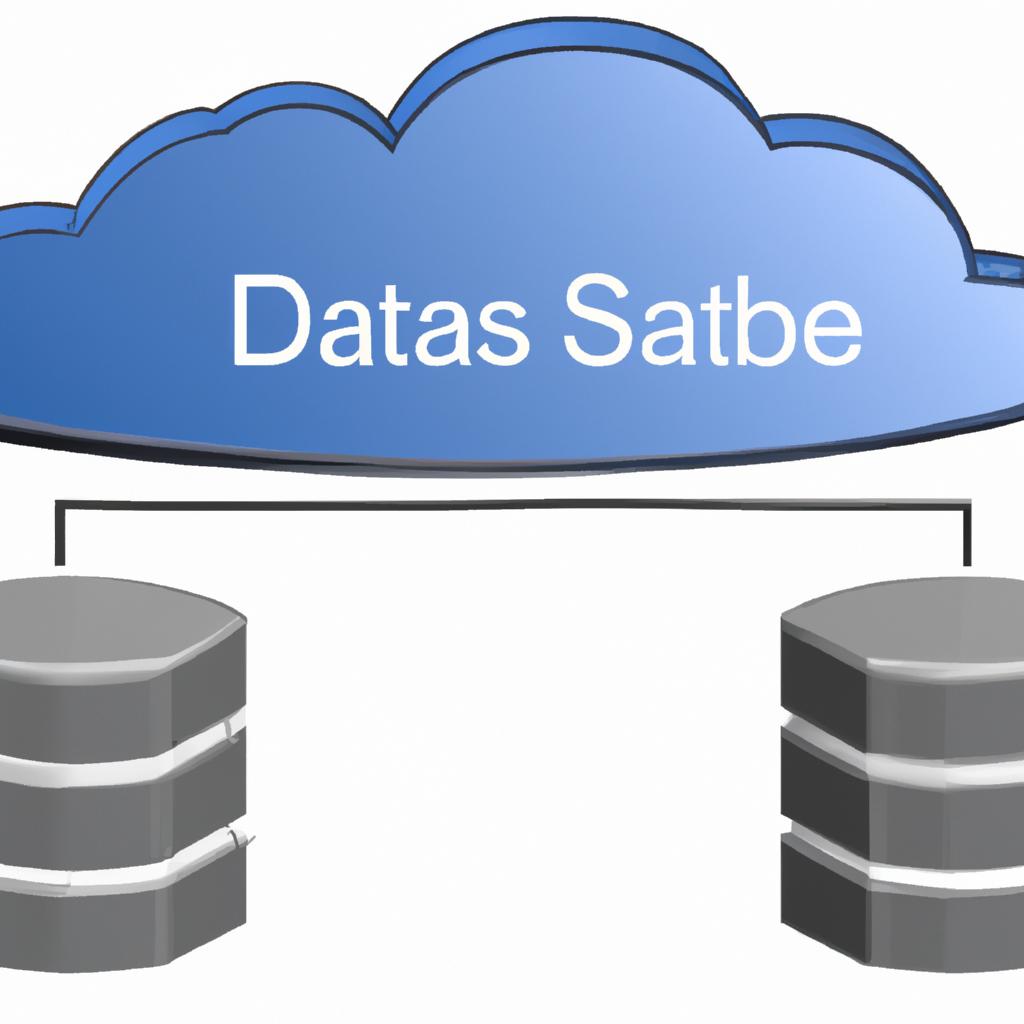Cloud Data Warehouse Tools: A Comprehensive Guide

As businesses continue to face an overwhelming amount of data, it’s become increasingly essential to have an efficient and reliable system to store and manage that data. That’s where cloud data warehouse tools come in. These tools provide a scalable, cost-effective, and secure solution to manage and analyze data in real-time.
The Importance of Cloud Data Warehouse Tools

With the rise of big data, businesses need to have a system that can handle the vast amount of information generated daily. Cloud data warehouse tools offer a centralized platform to store and manage data, making it easier to analyze and derive insights that can help businesses make data-driven decisions.
Cloud data warehouse tools also provide businesses with the ability to scale their data storage and processing capabilities to meet their growing needs. This scalability eliminates the need to invest in expensive hardware and software, allowing businesses to save money and focus on core business operations.
Overview of the Article

In this comprehensive guide, we’ll take a closer look at cloud data warehouse tools. We’ll start by defining what cloud data warehouse tools are and the benefits they offer. We’ll also explore the features of these tools and how to choose the right one for your business needs. We’ll also provide best practices on using cloud data warehouse tools and how to ensure data security and governance. Finally, we’ll look at the future of cloud data warehouse tools and how they will continue to shape the way businesses handle and analyze data.
Understanding Cloud Data Warehouse Tools
Cloud data warehouse tools are software solutions that allow businesses to store, manage, and analyze large amounts of data in the cloud. These tools provide a centralized platform for data storage and processing, allowing businesses to have a single source of truth for their data.
Definition of Cloud Data Warehouse Tools
Cloud data warehouse tools are a type of cloud-based software that allows businesses to store and manage data in a centralized location. These tools provide various features and functionalities, such as data integration, data modeling, and data governance, to help businesses manage their data more efficiently.
Benefits of Using Cloud Data Warehouse Tools
There are numerous benefits to using cloud data warehouse tools for businesses. Some of the primary benefits include:
- Scalability: Cloud data warehouse tools can easily scale up or down to meet the changing data storage and processing needs of a business.
- Cost-effectiveness: These tools eliminate the need for businesses to invest in expensive hardware and software, reducing the overall cost of data management.
- Real-time data processing: Cloud data warehouse tools allow businesses to analyze and derive insights from their data in real-time, allowing for faster decision-making.
- Security: Cloud data warehouse tools provide advanced security features, such as data encryption and access controls, to protect sensitive data.
- Integration: Cloud data warehouse tools can integrate with other tools and platforms, making it easier to manage data across different systems.
Examples of Cloud Data Warehouse Tools
There are numerous cloud data warehouse tools available in the market, each with its own set of features and functionalities. Some of the popular cloud data warehouse tools include Amazon Redshift, Google BigQuery, Snowflake, and Microsoft Azure SQL Data Warehouse.
Features of Cloud Data Warehouse Tools
As businesses generate more data, it’s essential to have a system that can handle the increased data volume and processing requirements. Cloud data warehouse tools offer several features that make them an attractive option for businesses looking to manage and analyze their data efficiently.
Scalability
One of the most significant advantages of using cloud data warehouse tools is their scalability. These tools allow businesses to increase or decrease their data storage and processing capabilities as needed, providing the flexibility to handle sudden spikes in data volume or processing requirements. This scalability eliminates the need for businesses to invest in expensive hardware or software, reducing costs and saving time.
Security
Data security is a top concern for businesses that handle sensitive or confidential information. Cloud data warehouse tools offer a high level of security to protect data from unauthorized access, theft, or loss. These tools use advanced security protocols and encryption methods to ensure data is protected at all times.
Integration with Other Tools
Cloud data warehouse tools integrate seamlessly with other tools and platforms, making it easier for businesses to manage and analyze data from different sources. These integrations can help businesses streamline their data management processes, reducing the time and effort required to extract insights from data.
Real-Time Data Processing
The ability to process data in real-time is crucial for businesses that need to make quick decisions based on the latest data insights. Cloud data warehouse tools offer real-time data processing capabilities, allowing businesses to analyze data as it’s generated and use that information to make informed decisions.
Cost-Effectiveness
Cloud data warehouse tools offer a cost-effective solution for businesses that need to manage and analyze data efficiently. These tools eliminate the need for businesses to invest in expensive hardware or software, reducing costs and saving time. Additionally, cloud data warehouse tools offer a pay-as-you-go pricing model, allowing businesses to pay only for the services they need.
Best Practices for Using Cloud Data Warehouse Tools
Cloud data warehouse tools provide a centralized platform to store and manage data, making it easier to analyze and derive insights. However, to make the most out of these tools, it’s essential to follow best practices. In this section, we’ll discuss the best practices for using cloud data warehouse tools.
A. Data Modeling
Data modeling is the process of defining the structure of data and its relationships. It’s essential to create an efficient data model to ensure that the data is organized logically and can be easily accessed and analyzed.
When creating a data model, it’s important to consider the data sources, data types, and data relationships. You should also ensure that the data model is scalable and can handle future data growth.
B. Data Integration
Data integration involves merging data from different sources and formats into a single, unified data warehouse. It’s crucial to ensure that the data is integrated correctly, as any errors can lead to inaccurate insights and decisions.
When integrating data, it’s important to consider data quality, data security, and data privacy. You should also ensure that the data is integrated in real-time to provide timely insights.
C. Data Governance
Data governance refers to the management of data availability, usability, integrity, and security. It’s essential to have a robust data governance framework to ensure that the data is managed effectively and efficiently.
When implementing data governance, it’s important to define data policies, standards, and procedures. You should also ensure that the data is compliant with regulatory requirements and industry standards.
D. Data Security
Data security is critical when it comes to managing and storing data. It’s essential to have a robust security framework to protect the data from unauthorized access, theft, or loss.
When implementing data security, it’s important to consider data encryption, access control, and data backup. You should also ensure that the data is compliant with industry standards and regulations.
E. Performance Tuning
Performance tuning involves optimizing the data warehouse’s performance by improving query response times, data load times, and data processing times. It’s essential to ensure that the data warehouse is performing optimally to provide timely insights.
When implementing performance tuning, it’s important to consider query optimization, index optimization, and data partitioning. You should also ensure that the data warehouse is regularly monitored to identify and resolve performance issues.
Conclusion
In conclusion, cloud data warehouse tools are essential for businesses looking to manage and analyze large amounts of data efficiently. The benefits of using these tools are numerous, including scalability, cost-effectiveness, and real-time data processing capabilities.
When choosing the right cloud data warehouse tool for your business, it’s crucial to assess your needs, evaluate the features and functionalities of different tools, and consider the costs and vendor support options.
By following best practices, such as proper data modeling, integration, governance, security, and performance tuning, businesses can get the most out of their cloud data warehouse tools.
As technology continues to evolve, cloud data warehouse tools will continue to play a critical role in helping businesses manage and analyze data. By staying up-to-date on the latest trends and innovations, businesses can stay ahead of the competition and make data-driven decisions that drive success.
Conclusion: So above is the Cloud Data Warehouse Tools: A Comprehensive Guide article. Hopefully with this article you can help you in life, always follow and read our good articles on the website: nettruyen.dev



